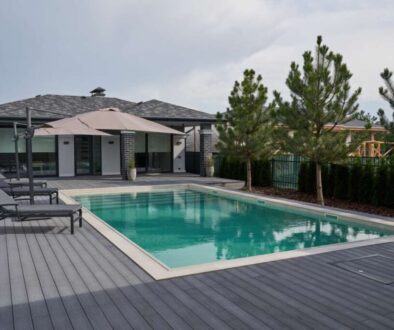Is it better to lease or buy pool service vehicles? Discover the pros and cons of each option to make an informed decision for your pool service business.
Is It Better to Lease or Buy Pool Service Vehicles?
If you’re in the pool maintenance industry, one of the key decisions you’ll face is whether to lease or buy your service vehicles. This choice can significantly impact your operational efficiency, financial stability, and long-term growth potential. In this article, we will explore the advantages and disadvantages of each option, providing insights and analysis to help you make an informed decision. We will also delve into the implications of these choices specifically for pool service businesses, highlighting factors such as cash flow, maintenance costs, and asset ownership.
Introduction
As an entrepreneur in the pool service industry, you know that reliable transportation is essential for your business. Your vehicles not only serve as a means of transportation but are also an extension of your brand. Therefore, the decision between leasing or buying your service vehicles can have far-reaching consequences. Leasing may offer lower upfront costs and the latest models, while purchasing can provide long-term asset ownership and potentially lower costs over time. Throughout this article, we will examine these options in detail, discussing their relevance to your operations and profitability.
The Financial Implications of Leasing vs. Buying
When considering whether to lease or buy pool service vehicles, the financial implications are paramount. Leasing typically requires a lower initial investment compared to purchasing. For a start-up or a business looking to conserve cash flow, this can be a significant advantage. Monthly lease payments can often be lower than financing payments for a vehicle purchase. Additionally, the lease may cover maintenance and repair costs, which can simplify budgeting for vehicle expenses.
On the other hand, purchasing a vehicle means you’ll own an asset that can appreciate over time. Once the vehicle is paid off, your only ongoing costs will be maintenance, insurance, and fuel. This can lead to significant savings in the long run, especially if you plan to keep your vehicles for many years. Moreover, owning a vehicle can also provide tax benefits through depreciation deductions, which can further improve your bottom line.
For example, if you opt to purchase a used vehicle for your pool service business, the initial cash outlay may be higher, but it allows you to build equity in the asset. Should you ever decide to sell the vehicle, you may recover a portion of your investment. This contrasts with leasing, where you typically have no equity in the vehicle at the end of the lease term.
Maintenance and Reliability Considerations
Another critical aspect to consider is the maintenance and reliability of your vehicles. Leasing often provides the advantage of driving newer models, which tend to come with fewer maintenance issues. Many lease agreements also include maintenance packages that cover regular servicing. This can be especially beneficial for pool service businesses that rely on dependable transportation for timely service delivery.
However, when you choose to buy your vehicles, you retain full control over maintenance and service schedules. This allows you to establish a routine that suits your operational needs. While newer vehicles require less maintenance, older vehicles can still be reliable if properly cared for. Moreover, having a trusted mechanic can help you manage your maintenance costs effectively.
For pool service operators, the reliability of your vehicles can directly impact customer satisfaction. For instance, if you are consistently late due to vehicle issues, you risk losing customers. In contrast, with owned vehicles, you can manage your repair schedules to avoid operational downtime. If reliability and control are high on your priority list, buying may be the better choice.
Flexibility and Business Growth Potential
In the dynamic pool maintenance industry, flexibility is crucial. Leasing can offer significant flexibility, especially for companies that anticipate rapid growth or fluctuations in business demand. Leasing allows businesses to acquire newer vehicles more frequently, which can be essential when expanding a fleet. If demand for your services increases, you can easily add leased vehicles without the financial burden of purchasing new assets.
Conversely, purchasing vehicles can provide stability, particularly for established businesses. Ownership means that you can customize the vehicles to fit your branding and operational needs without restrictions that might come with a lease. If your business is in a growth phase, owning a vehicle may allow you to capitalize on opportunities without being tied to a lease’s terms and conditions.
For example, if you own your fleet, you have the option to adapt your vehicles for specific services, such as adding custom storage solutions for tools and equipment. This adaptability can enhance efficiency, allowing your pool service business to respond quickly to changes in customer needs.
Evaluating Your Long-Term Business Strategy
When deciding whether to lease or buy vehicles, it’s essential to evaluate your long-term business strategy. If your goal is to establish a legacy business with assets that contribute to your overall value, purchasing may be more aligned with your objectives. Owning vehicles can also enhance your credibility in the market, showing potential clients that you are committed to your business and have invested in quality service.
On the other hand, if your business model involves rapid scaling or flexibility, leasing may serve you better. It allows you to adjust your fleet size based on current demand without the long-term commitment of ownership. Additionally, leasing may be more suitable if you operate in a highly competitive market where the latest technology and vehicle models can give you an edge.
It’s also worth noting that the pool maintenance industry has seen an increase in competition, especially in lucrative markets like Florida and Texas. In such environments, having the most efficient and reliable vehicles can mean the difference between success and failure. Thus, aligning your vehicle acquisition strategy with your business goals is crucial.
Assessing Your Budget and Cash Flow
Your budget and cash flow situation will significantly influence your decision between leasing and buying pool service vehicles. If you have limited capital or are just starting your business, leasing might be a more viable option. It allows you to acquire vehicles without a substantial upfront investment, preserving cash for other operational needs.
However, if your business is financially stable and generating consistent revenue, purchasing vehicles could be the smarter financial strategy. The long-term cost savings and asset ownership can lead to improved cash flow over time. It’s essential to analyze your financial projections and vehicle usage needs to make the best decision.
For example, if you anticipate significant growth in customer base and service demand, investing in purchased vehicles could pay off in the long run. On the other hand, if you are still establishing your business, leasing can provide the necessary flexibility to adapt to changing market conditions without overextending your budget.
Making the Right Choice for Your Pool Service Business
Ultimately, the decision to lease or buy pool service vehicles will depend on your unique circumstances, business goals, and financial situation. Both options have their merits, and understanding your specific needs will guide you in making the best choice.
If you value predictability, low maintenance costs, and flexibility, leasing may be the way to go. However, if you prioritize asset ownership, tax benefits, and long-term savings, purchasing vehicles will likely serve your business better.
Before making any decisions, consider consulting with a pool business broker who can provide insights tailored to your specific market conditions. They can help you evaluate your options thoroughly and ensure that you choose the path that aligns best with your business objectives.
Conclusion
In conclusion, whether to lease or buy pool service vehicles is a decision that requires careful consideration of your financial situation, operational needs, and long-term business strategy. Each option has its advantages and drawbacks, and understanding these can help you make an informed choice that benefits your pool service business.
By evaluating your cash flow, maintenance needs, and growth potential, you can determine which option aligns with your goals. Remember, investing in reliable vehicles is essential for maintaining customer satisfaction and operational efficiency in the competitive pool maintenance industry. As you contemplate this decision, consider reaching out to experts in the field, such as Tower Business Brokers, to gain further insights and assistance tailored to your needs.
Contact us today to explore how we can assist you in making the right decision for your pool service vehicle needs and set your business up for success in the growing pool maintenance industry.



